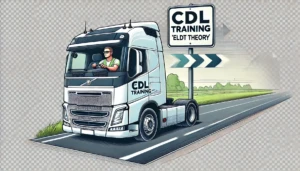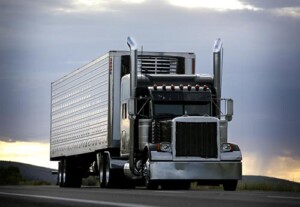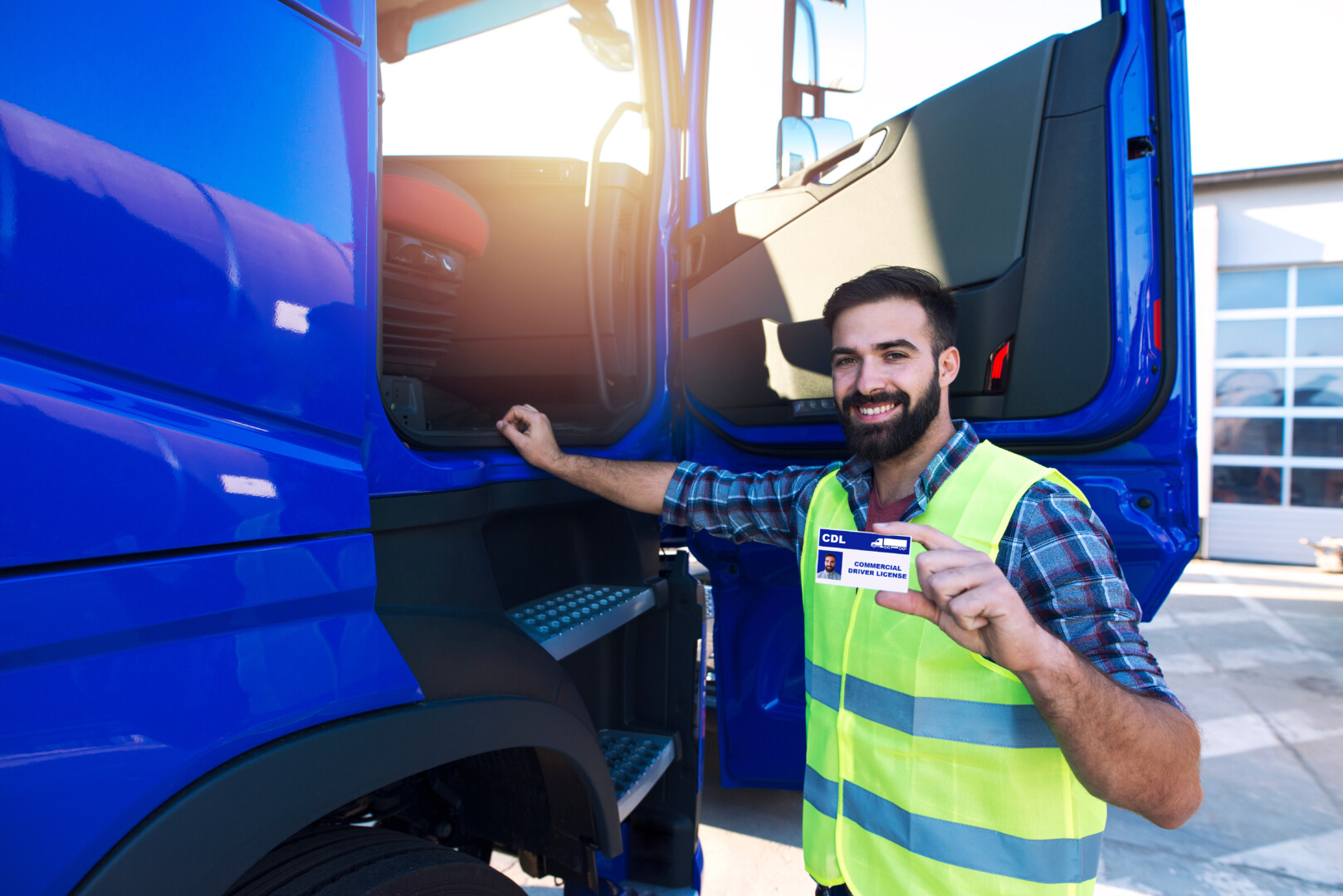Understanding the types of commercial driver’s licenses available in Texas is your first step toward a rewarding trucking career. Texas offers three distinct CDL classifications, each opening different career opportunities in the growing transportation industry.

A Class A CDL qualifies you to operate tractor-trailers and truck combinations over 26,001 pounds, making it the most versatile license for over-the-road trucking opportunities. This classification provides access to the highest-paying positions in long-haul freight, specialized transport, and owner-operator opportunities.
Class B CDL covers large trucks, segmented buses, and delivery vehicles over 26,001 pounds but under the combination weight limits. This license is perfect for local delivery routes, construction vehicles, and city transit positions that offer regular home time.
Class C CDL applies to smaller commercial vehicles under 26,001 pounds that require special licensing due to passenger capacity or hazardous materials transport. Many shuttle services, small delivery companies, and specialized transport services require this classification.
Texas follows federal CDL requirements with specific state applications. You must be at least 18 for intrastate driving (within Texas only) or 21 for interstate commerce (crossing state lines). All applicants need medical certification through a DOT physical, clean driving records, and completion of Entry Level Driver Training from an approved provider like Virtual Drive of Texas.

Online CDL Training Benefits
Online CDL training revolutionizes how working adults can pursue commercial driving careers without disrupting their current employment or family commitments. Our self-paced learning platform accommodates different schedules, allowing you to complete coursework during evenings, weekends, or lunch breaks.
Flexibility and Convenience: Study from anywhere with internet access using your computer, tablet, or smartphone. No need to arrange time off work or travel to physical locations for classroom instruction. Complete modules at your own pace while maintaining your current income during training.
Cost-Effective Education: Online training eliminates travel expenses, lodging costs, and lost wages from traditional truck driving schools. Our comprehensive curriculum costs significantly less than attending physical CDL schools while providing the exact federal certification requirements.
Updated Digital Resources: Access current federal regulations, interactive modules, and simulation-based learning that keeps pace with industry changes. Digital materials update automatically, ensuring you learn the most recent regulations affecting commercial drivers.
Comprehensive Exam Preparation: Our online course prepares you for both written knowledge exams and practical CDL skills testing. Interactive modules combine theoretical knowledge with coordination for hands-on training through local partners, ensuring you’re fully prepared for Texas DPS testing.
Texas CDL License Classes and Endorsements
Each CDL classification opens specific career opportunities, and understanding these differences helps you choose the right path for your goals and lifestyle preferences.
Class A CDL Requirements and Opportunities: Operate vehicles over 26,001 pounds gross vehicle weight rating with towed vehicles exceeding 10,000 pounds. This includes tractor-trailers, flatbed trucks, tank trucks, and specialized hauling equipment. Class A drivers typically earn the highest salaries in commercial transportation, with experienced drivers earning $60,000-$80,000+ annually.
Class B CDL Applications: Drive single vehicles over 26,001 pounds, including delivery trucks, dump trucks, concrete mixers, and large RVs. Class B positions often provide better work-life balance with local routes and regular home time while still offering competitive salaries of $45,000-$65,000 annually.
Class C CDL Specializations: Handle smaller commercial vehicles that transport hazardous materials or carry 16+ passengers. While covering fewer vehicle types, Class C licenses often lead to stable employment with government agencies, school districts, or specialized transport companies.
High-Value Endorsements: Hazmat (H) endorsement requires background checks but significantly increases earning potential through specialized freight opportunities. Passenger (P) and School Bus (S) endorsements provide stable employment with excellent benefits. Tank Vehicles (N) and Doubles/Triples (T) endorsements qualify you for premium freight with higher compensation.
Avoiding Restrictions: Air brake restrictions severely limit employment opportunities. Our training ensures you qualify for unrestricted licenses, maximizing your career potential across all commercial vehicle types. Automatic transmission restrictions similarly limit job options in an industry where manual transmissions remain common.

Online Course Curriculum and Structure
Virtual Drive’s ELDT-compliant curriculum meets all federal Entry-Level Driver Training requirements while focusing on practical skills that make you job-ready from day one. Our interactive learning platform combines theoretical knowledge with real-world applications.
Core Training Modules:
- Pre-trip Inspection Mastery: Learn the comprehensive 14-point inspection process that prevents roadside violations and ensures safe vehicle operation
- Hours of Service Compliance: Understand federal regulations governing driving time, rest periods, and electronic logging device requirements
- Federal Motor Carrier Safety Regulations: Master the regulations governing commercial vehicle operation, cargo securement, and driver responsibilities
- Vehicle Systems Operation: Comprehensive coverage of air brakes, transmission types, engine systems, and vehicle maintenance requirements
- Defensive Driving Techniques: Commercial vehicle-specific strategies for space management, hazard recognition, and emergency procedures
Interactive Learning Features: Our platform includes simulation-based training modules that let you practice vehicle inspections, route planning, and regulatory compliance in a risk-free environment. Experienced instructors provide personalized feedback and support throughout your training journey.
Hands-On Training Coordination: While completing online coursework, we coordinate with local driving ranges and qualified instructors for required behind-the-wheel training. This blended approach ensures you receive comprehensive preparation for both written exams and practical skills testing without the scheduling constraints of traditional schools.

Career Opportunities and Earning Potential
The trucking industry offers exceptional career stability and growth potential, with demand for qualified commercial drivers continuing to increase across Texas and nationwide. Understanding your earning potential helps justify the investment in quality CDL training.
Salary Ranges by Position Type:
- Local Delivery Drivers: $45,000-$55,000 annually with regular home time and predictable schedules
- Regional Trucking: $55,000-$65,000 annually with weekly home time and varied routes
- Over-the-Road (OTR): $60,000-$75,000+ annually for long-haul positions with major carriers
- Specialized Freight: $70,000-$90,000+ annually for hazmat, oversized loads, and dedicated routes
- Owner-Operators: $80,000-$150,000+ annually for entrepreneurial drivers managing their operations
High-Demand Specializations: Hazmat transport, refrigerated freight, and construction equipment hauling offer premium compensation due to specialized skill requirements. Many positions include comprehensive benefits packages with health insurance, retirement plans, and performance bonuses.
Job Placement Support: Major Texas trucking companies actively recruit qualified CDL graduates, often offering sign-on bonuses, guaranteed home time, and advancement opportunities. Our industry connections help connect graduates with employers seeking reliable, trained drivers.
Online vs. Traditional CDL Training Comparison
Understanding the advantages of online CDL training helps you make an informed decision about your education investment and career timeline.
Time Commitment Comparison: Traditional truck driving schools typically require 3-8 weeks of full-time attendance, forcing students to leave current employment during training. Online training allows you to maintain your current income while preparing for a career transition at your own pace.
Cost Analysis: Online programs cost significantly less than traditional schools when considering tuition, lost wages, travel expenses, and lodging costs. Many students save $5,000-$10,000 by choosing online preparation over residential training programs.
Learning Effectiveness: Online platforms provide unlimited access to training materials, allowing a thorough review of challenging concepts. Traditional classroom settings often move too quickly for some learners while boring others who grasp concepts quickly.
Hands-On Training Integration: Both online and traditional programs require the same behind-the-wheel training hours. Online programs coordinate this training locally, often providing more scheduling flexibility than school-operated driving ranges.

Virtual Drive’s CDL Training Program
Our comprehensive online CDL training program builds on Virtual Drive of Texas’s 20+ years of experience helping Texans achieve their licensing goals. We’ve adapted our proven educational methods specifically for commercial driver training.
ELDT Compliance and Certification: Our curriculum fully complies with federal Entry-Level Driver Training requirements, ensuring your certificate meets all DPS and employer requirements. Upon completion, you receive the official documentation needed for CDL testing and employment applications.
Flexible Scheduling Options: Complete coursework on your schedule with 24/7 platform access. Whether you’re a shift worker, parent, or maintaining current employment, our self-paced program accommodates your lifestyle while ensuring thorough preparation.
Experienced Instructor Support: Access experienced commercial driving instructors for questions, clarification, and career guidance throughout your training. Our support team understands both the technical requirements and practical realities of commercial driving careers.
Competitive Pricing and Value: Our program costs a fraction of traditional truck driving schools while providing superior flexibility and comprehensive preparation. Like our adult driver education courses priced at just $38, we believe quality education should be affordable and accessible.
Job Placement Assistance: We maintain relationships with Texas trucking companies and staffing agencies to help graduates find employment opportunities matching their career goals and lifestyle preferences.

Getting Started with CDL Training
Beginning your CDL journey with Virtual Drive of Texas is straightforward and designed for busy adults ready to advance their careers in commercial transportation.
Self-Assessment and Preparation: Use our CDL readiness assessment to identify any preparation needed before beginning formal training. This tool helps you understand the commitment level and timeline for successful completion.
Required Documentation: Gather necessary documents, including a valid Texas driver’s license, Social Security verification, and medical certification from a DOT-approved examiner. Our detailed checklist ensures you have everything needed for the DPS application.
Course Access and Navigation: Once enrolled, access our user-friendly platform from any device with internet connectivity. The intuitive interface guides you through required modules while tracking your progress toward completion.
Testing Preparation: Our curriculum prepares you for all required knowledge tests and coordinates practical training for skills testing. Use our comprehensive guide to Texas DPS locations to find convenient testing sites and schedule your exams.
Timeline and Expectations: Most students complete our online coursework within 4-6 weeks while maintaining other commitments. Add 2-4 weeks for coordinated hands-on training and testing, making the total timeline approximately 2-3 months from enrollment to license.
Ongoing Support: Our commitment extends beyond course completion with career counseling, job placement assistance, and continuing education resources. We’re invested in your long-term success in the commercial transportation industry.
Transform your career with the stability, earning potential, and freedom that come with a Texas CDL. Virtual Drive of Texas provides the foundation, support, and expertise to help you succeed in this rewarding industry.








